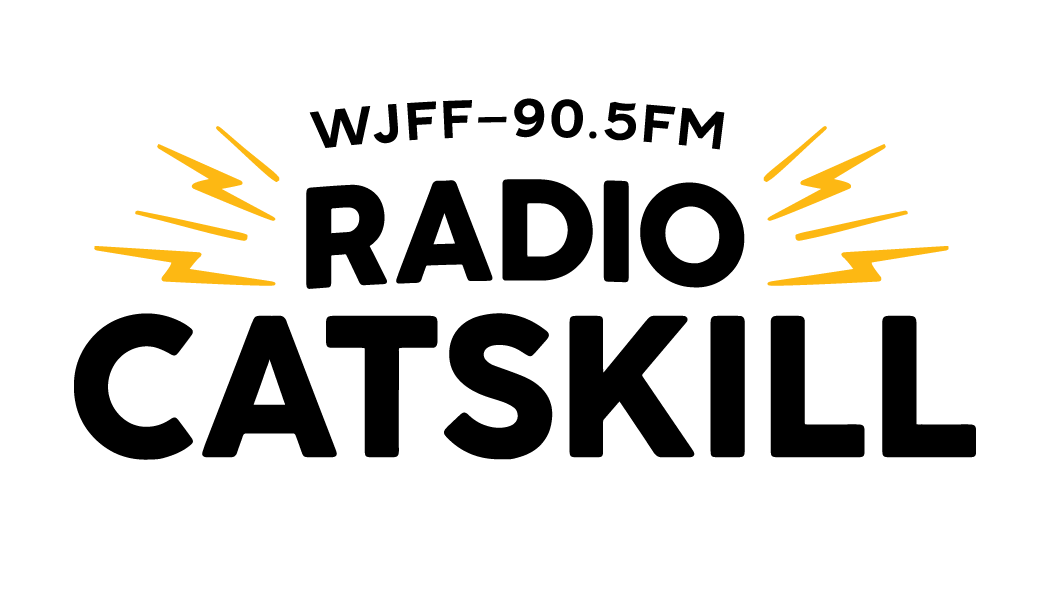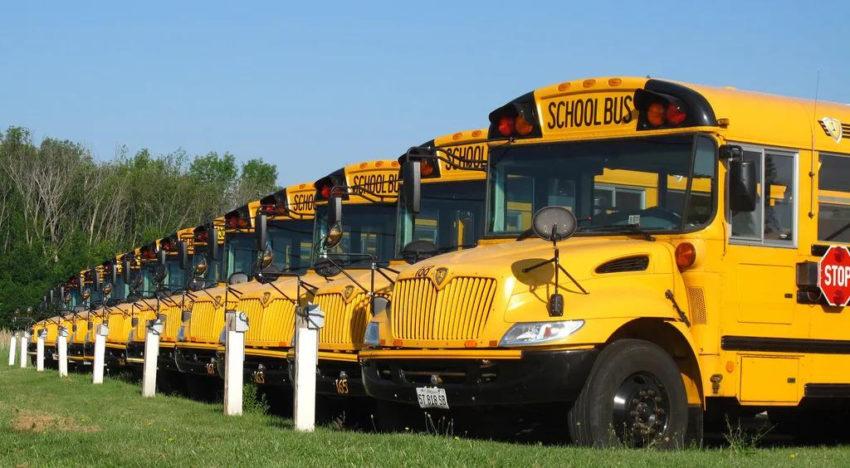In March, Monticello Central School District received a new electric school bus. It’s the first zero-emission bus in the district’s fleet of over 50 vehicles, which otherwise runs on diesel, gas and hybrid power. The arrival of the bus was a year and a half in the making, and involved a grant application and consultations with Leonard Bus Sales, the district’s architect and New York State Electric and Gas, said Matthew Evans, the superintendent of Monticello Central School District.
The new bus is part of Monticello’s efforts to meet an ambitious mandate that was set in Albany as part of the 2022-23 state budget. By July 1, 2027, it states, all school districts in New York State can only purchase zero-emission buses, and by July 1, 2035, all school buses operating in-state must be zero-emission — powered by electricity, rather than diesel or gas. It’s part of New York’s Climate Leadership & Community Protection Act, which set a goal of reducing the state’s greenhouse gas emissions by 40% from 1990 levels by 2030.
In October of 2022, Monticello Central School District won a full grant from the Environmental Protection Agency’s Clean School Bus Program to fund its first electric school bus purchase: $375,000 for the bus and $20,000 for a charger. The district opted to upgrade to a faster charger, supplementing the grant with additional money from its general fund. “We were told, if you want this bus to operate on a regular run, then you really need the fast charger. … We figured, either we’re going to pay now or pay later,” Evans explained. Unlike most surrounding school districts who contract out their transportation services, Monticello owns and operates its school buses, which are housed in its transportation center.
The bus arrived in March of this year, and the first three months with the electric bus has been a data collection period for Monticello’s transportation department, Evans said. The electric buses come with a learning curve — new driving techniques, charging schedules and maintenance procedures. Monticello’s transportation team is learning how the bus performs over long distances, in hilly terrain and varying weather conditions — it’s only been driven by the team’s administrators, who are learning “what they need to know before they impart that information to our drivers and mechanics,” said Evans.
So far, the bus has been operating smoothly. “It seems to get to and from their destinations on time and without issue. The charging station is working very well,” Evans described. “But it’s a new vehicle, so one would expect a three month old vehicle to operate great.”
Beyond the learning curve of an electric bus fleet, chief on everyone’s minds is the question of funding. The upfront costs of electric buses are high: the price of a new bus can be between two to four times its diesel equivalent, and that’s excluding the cost of charging infrastructure. Proponents of electric buses point out that in the long run, maintenance and power costs may be less than that of conventional buses, and that the health and climate benefits of reduced tailpipe emissions are significant.
Even with grants, the capital costs necessary for the zero-emission transition are a big hurdle. In several school districts throughout New York, voters rejected proposals to buy electric school buses. Republican lawmakers have called for the mandate’s repeal, and for the 2035 deadline to be pushed to 2045. They’ve criticized the current timeline as “unworkable,” and “another mandate from Albany that burdens cash-strapped school districts and taxpayers.”
“It’s a politically charged issue for some. We don’t get into that,” said Evans. “We merely follow what comes to us from Albany.” But he also expressed skepticism about the feasibility of the current plan. “I think there’s a lot of unanswered questions at this point and a lot of challenges and uncertainty around not only the funding, but the infrastructure that’s needed for school districts and transportation providers to make this switch. … And I think the state still has more work to do, not only with schools and transportation providers, but also utility providers as well.”
Electric school buses are not part of Monticello’s 2024-25 budget, which voters have approved. “These are things that we’re going to start rolling in possibly as soon as next year’s budget, but we’re still pretty far away from that decision,” Evans said. “And remember, … we’re not really limited to electric vehicle purchases until 2027. So there’s still time to kind of wait and see how the infrastructure plays out, or to see if those dates get moved back. Or to see if there are more state and federal funding opportunities before we, you know, really start purchasing new buses.”
Evans said that this past winter, the district applied for another grant from the EPA’s Clean School Bus Program, but was denied. He also said that Monticello is currently in the process of applying for bus and charging vouchers from the New York School Bus Incentive Program.
Otherwise, Monticello seems to be taking a wait-and-see approach. “I would like to think that these mandates are coming from a good place to reduce carbon emissions and curtail climate change, as a public policy,” Evans said. “I think it’s good that those dates are out there and it gives something people to shoot for, but … to me, it’s still an unsettled question about whether we’ll get there on time.”
Image: Credit: JohnPickenPhoto / Flickr / Creative Commons

